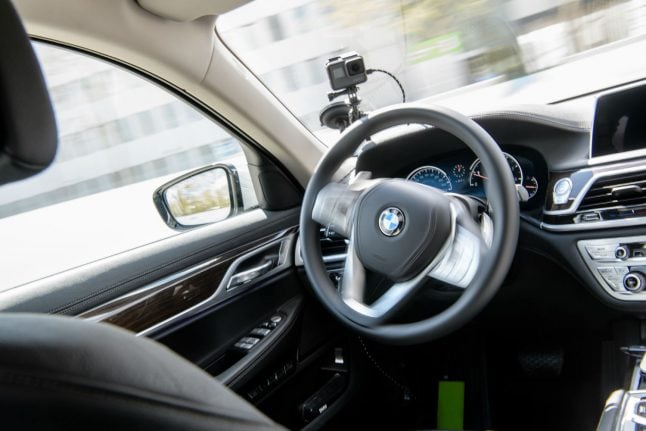The two manufacturers have sealed a “long-term, strategic cooperation…to
make next-level technologies widely available” by around 2025, they said in a joint statement.
Munich-based BMW and Stuttgart's Daimler plan first to focus on so-called
level three and four systems on an internationally-recognized scale for
automated driving.
SEE ALSO: BMW opens campus for self-driving cars near Munich
They will stop short of level five — which would see the on-board computer
take over completely from the human driver under all circumstances.
Rather, the hoped-for technology will at first offer driving and parking assistance and limited autonomy on motorways.
“Instead of individual, stand-alone solutions, we want to develop a reliable overall system,” said Daimler board member Ola Kallenius, who is set to take over from departing chief executive Dieter Zetsche in May.
The firms would “discuss the possibility of extending their collaboration
to cover higher levels of automation, both on highways and in urban areas,”
they said.
SEE ALSO: Germans worry driverless cars will take the fun out of their favourite pastime

Already in January 2015, Daimler CEO Dieter Zetsche presented his vision for self-driving cars at a technology fair in Los Vegas. Photo: DPA
“Other technology companies and automotive manufacturers” could be invited aboard in future, the companies added.
Thursday's announcement marks the latest cooperation between BMW and
Daimler, who have otherwise been locked for years in a near neck-and-neck race for dominance of the global high-end car market.
Last week, the groups announced a €1 billion investment in combining their carsharing and other apps into a joint scheme
offering short-term rentals, parking spots and electric charging points, taxi
and chauffeur hailing and journey planning.
Partnerships have been proliferating across the auto industry as increasingly massive investments are needed to develop new technologies.
Honda recently invested in General Motors' self-driving car unit, BMW is
working with Intel and Fiat, and Daimler has linked up with components
supplier Bosch.
SEE ALSO: Up to 1,000 jobs to be created as German car giants turn to carsharing



 Please whitelist us to continue reading.
Please whitelist us to continue reading.
Member comments